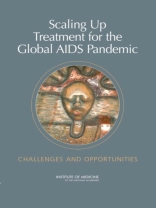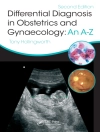An estimated forty million people carry the human immunodeficiency virus (HIV), and five million more become newly infected annually. In recent years, many HIV-infected patients in wealthy nations have enjoyed significantly longer, good-quality lives as a result of antiretroviral therapy (ART). However, most infected individuals live in the poorest regions of the world, where ART is virtually nonexistent. The consequent death toll in these regionsespecially sub-Saharan Africais begetting economic and social collapse.To inform the multiple efforts underway to deploy antiretroviral drugs in resource-poor settings, the Institute of Medicine committee was asked to conduct an independent review and assessment of rapid scale-up ART programs. It was also asked to identify the components of effective implementation programs.At the heart of the committee’s report lie five imperatives: Immediately introduce and scale up ART programs in resource-poor settings. Devise strategies to ensure high levels of patient adherence to complicated treatment regimens. Rapidly address human-resource shortages to avoid the failure of program implementation. Continuously monitor and evaluate the programs to form the most effective guidelines and treatment regimens for each population. Prepare to sustain ART for decades.
Board on Global Health & Committee on Examining the Probable Consequences of Alternative Patterns of Widespread Antiretroviral Drug Use in Resource-Constrained Settings
Scaling Up Treatment for the Global AIDS Pandemic [EPUB ebook]
Challenges and Opportunities
Scaling Up Treatment for the Global AIDS Pandemic [EPUB ebook]
Challenges and Opportunities
Acquista questo ebook e ricevine 1 in più GRATIS!
Lingua Inglese ● Formato EPUB ● Pagine 344 ● ISBN 9780309165839 ● Editore Haile Debas & James Curran ● Casa editrice National Academies Press ● Pubblicato 2004 ● Scaricabile 3 volte ● Moneta EUR ● ID 7141923 ● Protezione dalla copia Adobe DRM
Richiede un lettore di ebook compatibile con DRM












